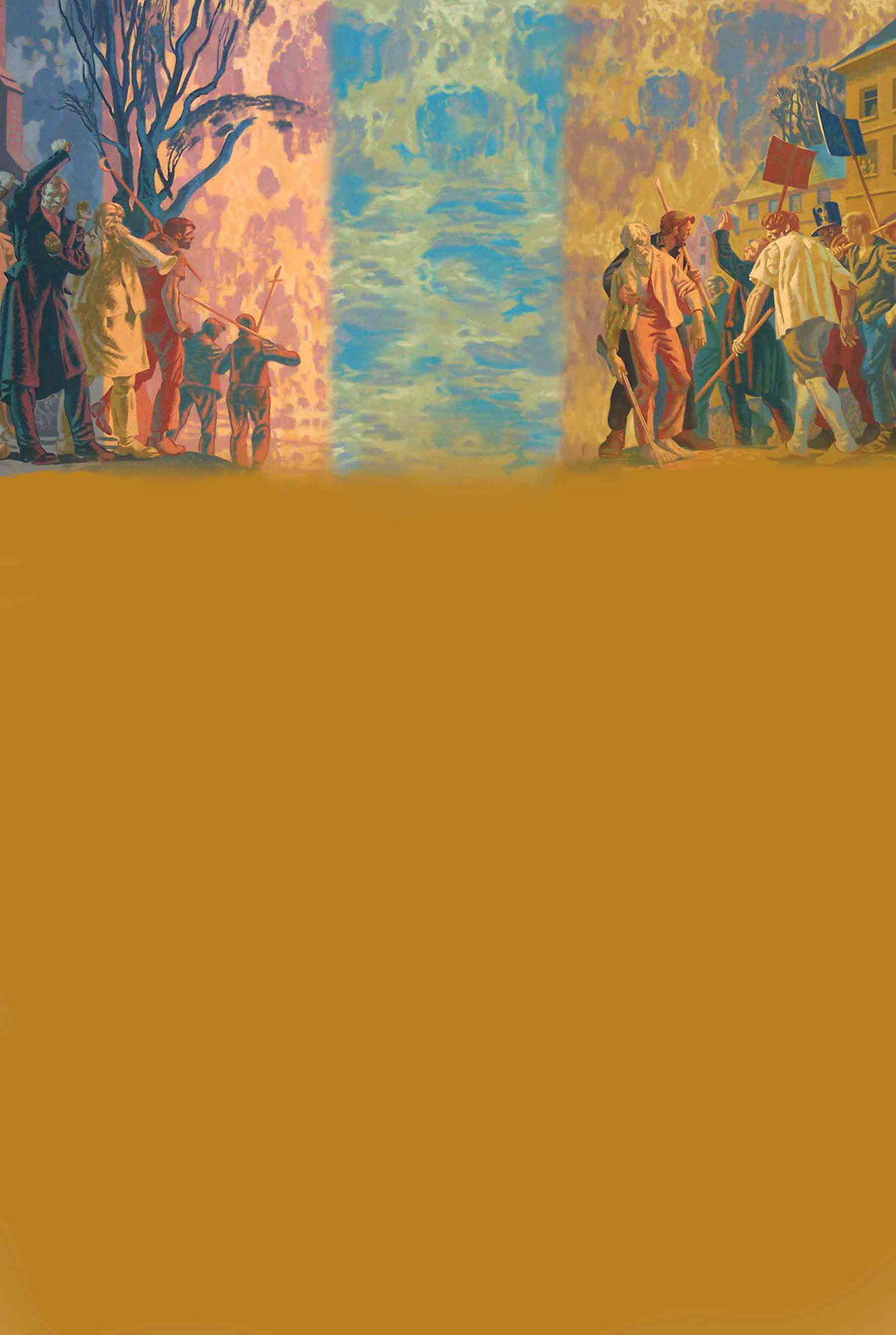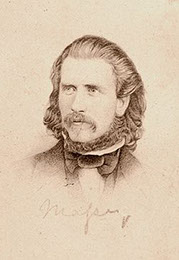

Gerald Massey: The Chartist Poet
by Peter Warner Clark
 PETER WARNER CLARK expresses concern that Croydon and Lambeth Council are considering closing the old library in South Norwood near where he lives.
PETER WARNER CLARK expresses concern that Croydon and Lambeth Council are considering closing the old library in South Norwood near where he lives.
It is the depository of the writings of Gerald Massey(1828-1907), a radical and Chartist journalist.
An ardent supporter of the People’s Charter, Massey wrote prolifically between 1847 and 1852 for radical publications such as ‘The Uxbridge Spirit of Freedom’, ‘The Red Republican’ and ‘The Friend of the People’.
His poem, ‘The Famine Smitten’, in apocalyptic language calls upon the people to rise and grasp their freedom:
On Heaven, blood shall call,
Earth, quake with pent thunder,
And shackle and thrall,
Shall be riven asunder,
It will come, it shall come,
Impede it what may,
Up People! and welcome!
Your glorious day.
He was only twenty-two when he published his first volume of poems, Voices of Freedom and Lyrics of Love (1850). His work was much admired by the American poet, Walt Whitman who wrote (1855),
“I have looked over Gerald Massey’s Poems ― They seem to me zealous, candid, warlike, ― intended, as they surely are, to get up a strong feeling against the British aristocracy both in their social and governmental political capacity.” George Eliot was so impressed by Massey, she immortalized him as ‘Felix Holt, the Radical’ in her historical romance (1866) set in the East Midlands in 1832, the year of the Refom Act.
Born the son of a silk mill worker in Tring, Hertfordshire, Massey’s poem ‘Lady Laura’ dwells upon the harsh conditions experienced by that community:
Pleasantly the Chime that calls to
Bridal-hall or Kirk;
But Hell might gloatingly pull for the peal that
wakes the babes to work!
“Come, little Children,” the Mill-bell rings,
and drowsily they run,
Little old Men and Women, and human
worms who have spun
The life of Infancy into silk; and fed, Child,
Mother, and Wife,
The factory’s smoke of torment, with the
fuel of human life.
O weird white face, and weary bones, and
whether they hurry or crawl,
You know them by the factory-stamp, they
wear it one and all.
The Factory-Fiend in a grim hush waits till
all are in, and he grins
As he shuts the door on the fair, fair world
without, and hell begins!
Massey worked twelve hours a day at the silk mill until it burned down, then he took up employment straw plaiting. Having received little formal schooling, he came at age 13/14 under the sway of Chartists preaching ‘knowledge is power’. He was now obsessed with Shakespearean literature, wrote poetry and turned himself into a leading Egyptologist. A free thinker and a rationalist at an early age, he explored the origins of religious belief in order to replace superstition with ‘science’. By the 1880s he had moved away from interpreting the world purely in material terms and espoused spiritualism, not as a means of propping up existing faith in deity of any kind, but as a new methodology of intellectual exploration. Massey believed in ‘spiritual evolution’, arguing Darwin’s theory contains only one half of the explanation of man’s origins. It is interesting to note that John Frost was also involved in spiritualism before his death in 1877.
In 1886, in support of Gladstone’s ill fated attempt to give home rule to Ireland, Massey published a set of satirical ‘Election Lyrics’, including ‘I was not made for money making’:
“The child comes into the world like a new coin with the stamp of God upon it…the poor man’s child [is] hustled and sweated down in this bag of society to get wealth out of it…so is the image of God worn from heart and brow, and day by day the child recedes devil-ward. I look back now with wonder, not that so few escape, but that any escape at all, to win a nobler growth for their humanity. So blighting are the influences which surround thousands in early life, to which I can bear such bitter testimony.”
I would not plod on, like these slaves of gold,
Who shut up their souls, in a dusky cave,
I would see the world better, and nobler-souled,
Ere I dream of Heaven in my green, turf-grave.
I may toil till my life is filled with dreariness,
Toil, till my heart is a wreck in its weariness,
Toil for ever, for tear-steept bread,
Till I go down to the silent dead.
But, by this yearning, this hoping, this aching,
I was not made merely for money-making.








